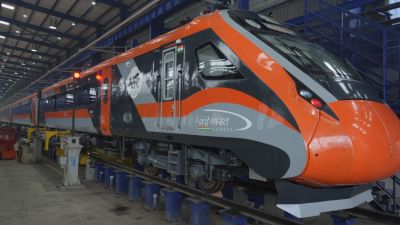G20 summit: Who are the regional, international groupings invited as guests
India has invited three regional and three international organisations as guests to the G20 summit. Here's what they are, and why they were invited.
 A man walks past a model of the G20 logo outside a metro station ahead of the G20 Summit in New Delhi, India, September 4, 2023. (Reuters/Anushree Fadnavis)
A man walks past a model of the G20 logo outside a metro station ahead of the G20 Summit in New Delhi, India, September 4, 2023. (Reuters/Anushree Fadnavis) New Delhi will host the 18th annual G20 Heads of State and Government Summit at Bharat Mandapam, Pragati Maidan, on September 9 and 10.
The city will witness the arrival of heads of state/government from all the G20 members (except for Russia’s Vladimir Putin, China’s Xi Jinping Mexico’s Andrés Manuel López Obrador), the invited heads of state from other partner nations, and representatives of international organisations like the UN, IMF, World Bank and WTO, for the meeting.
Apart from them, India has invited three regional and three other international organisations as guests. The regional organisations include the African Union (AU), the African Union Development Agency-New Partnership for Africa’s Development (AUDA-NEPAD), and the Association of Southeast Asian Nations (ASEAN).
The international organisations are the International Solar Alliance (ISA), the Coalition for Disaster Resilient Infrastructure (CDRI), and the Asian Development Bank (ADB). Here is everything you need to know about them.
What regional organisations have been invited to the G20 New Delhi summit?
African Union (AU)
The AU is an intergovernmental organisation, which comprises the 55 member states that make up the countries of the African Continent. Officially launched in 2002, the AU seeks to “achieve greater unity and solidarity between African countries and their people”.
The organisation is likely to become the 21st member of the G20 during this year’s Leaders’ Summit. Speaking about AU’s inclusion, Prime Minister Narendra Modi recently said, “No plan for the future of the planet can be successful without the representation and recognition of all voices”.
AUDA-NEPAD
The organisation came into existence in June 2018, when the AU decided to transform the NEPAD Planning and Coordination Agency — it was established in 2010 — into the African Union Development Agency-NEPAD (AUDA-NEPAD).
Its main purpose is to coordinate and execute priority regional and continental projects in Africa to realise ‘Agenda 2023’ — Africa’s blueprint and master plan for transforming the continent into the global powerhouse of the future.
ASEAN
Established on August 8, 1967, ASEAN is a political and economic union of 10 member states in Southeast Asia. While Indonesia, Malaysia, Philippines, Singapore and Thailand are its founding members, Brunei Darussalam, Vietnam, Laos, Myanmar, and Cambodia joined the organisation later.
ASEAN’s main objectives include accelerating economic growth, social progress and cultural development in Southeast Asia, and promoting regional peace and stability in the region.
What international organisations have been invited as guests to the G20 New Delhi summit?
ISA
The International Solar Alliance is a treaty-based intergovernmental organisation, launched by Prime Minister Modi and then French President François Hollande in 2016. Its aim is to provide a dedicated platform for cooperation among solar resource-rich countries and the wider global community to support the increasing use of solar energy.
Currently, 116 countries are signatories to the ISA Framework Agreement, of which 94 countries have submitted the necessary instruments of ratification to become full members of the ISA, according to the organisation’s website.
CDRI
Founded in 2019, the CDRI is a coalition of national governments, UN agencies and programmes, multilateral development banks, private sector and educational institutes that aims to promote new and existing disaster-resilient infrastructures.
The organisation also seeks to increase awareness about such infrastructures, and increase the availability of technical assistance and improve capacities.
ADB
Founded in 1966, ADB is engaged in promoting the economic and social progress of its developing member countries (DMCs) in the Asia Pacific Region. The main instruments that it uses to do this are loans and equity investments, providing technical assistance for development projects and programmes, along with other advisory services, loan guarantees, grants and policy dialogues.
ADB has 68 members, with its headquarters in Manila, Philippines. India holds 6.317% of shares, with 5.347 per cent voting rights. Japan and the US represent the largest shareholders, followed by China and India.
- 01
- 02
- 03
- 04
- 05






































